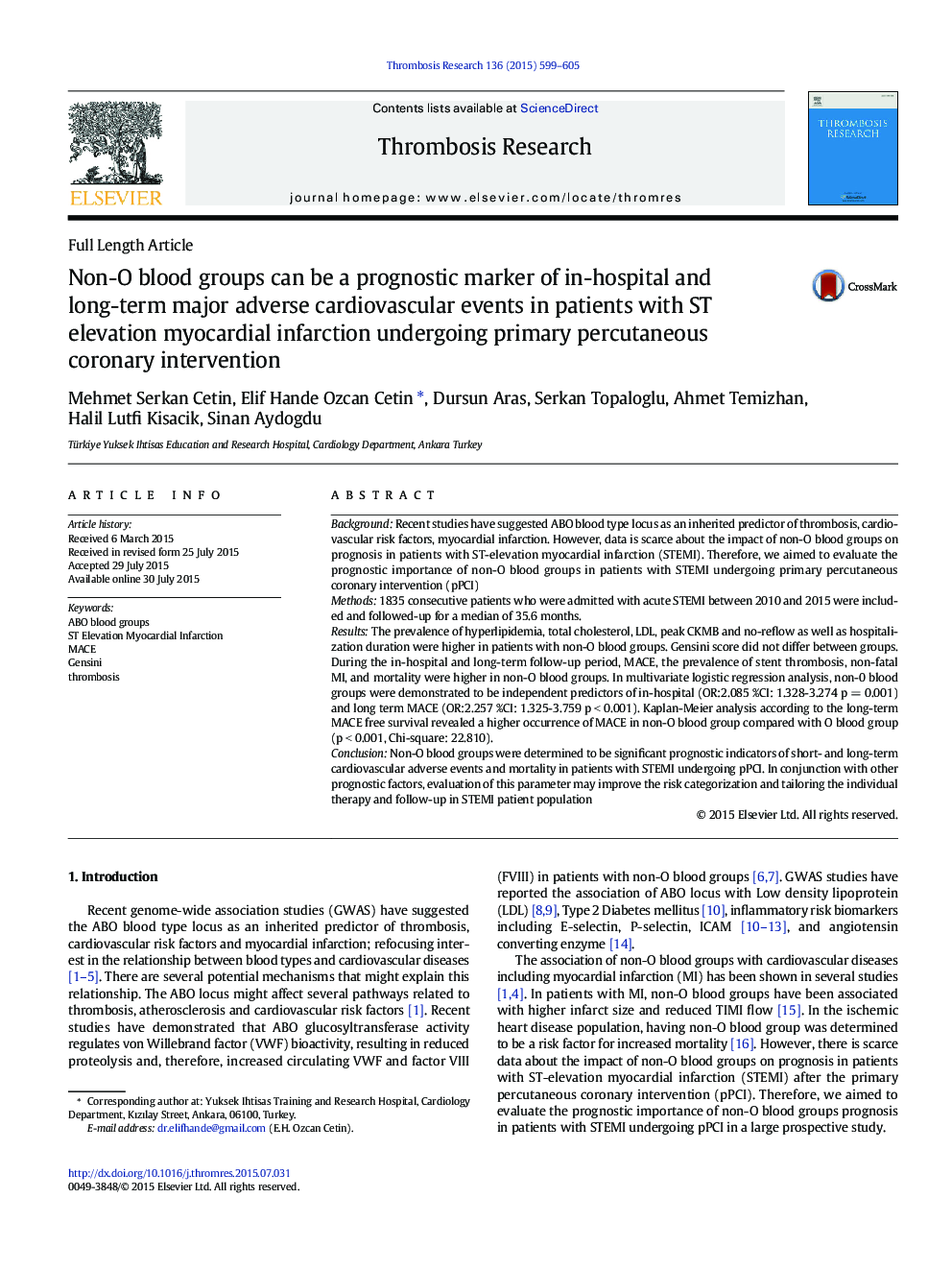| کد مقاله | کد نشریه | سال انتشار | مقاله انگلیسی | نسخه تمام متن |
|---|---|---|---|---|
| 3027074 | 1182938 | 2015 | 7 صفحه PDF | دانلود رایگان |

• We investigate the prognostic importance of ABO blood groups in STEMI population.
• Non-O blood groups are associated with increased in-hospital and long-term MACE.
• The rate of stent thrombosis and non-fatal MI are higher in non-O blood groups.
• Cardiovascular and all-cause mortality are more prevalant in non-O blood groups.
BackgroundRecent studies have suggested ABO blood type locus as an inherited predictor of thrombosis, cardiovascular risk factors, myocardial infarction. However, data is scarce about the impact of non-O blood groups on prognosis in patients with ST-elevation myocardial infarction (STEMI). Therefore, we aimed to evaluate the prognostic importance of non-O blood groups in patients with STEMI undergoing primary percutaneous coronary intervention (pPCI)Methods1835 consecutive patients who were admitted with acute STEMI between 2010 and 2015 were included and followed-up for a median of 35.6 months.ResultsThe prevalence of hyperlipidemia, total cholesterol, LDL, peak CKMB and no-reflow as well as hospitalization duration were higher in patients with non-O blood groups. Gensini score did not differ between groups. During the in-hospital and long-term follow-up period, MACE, the prevalence of stent thrombosis, non-fatal MI, and mortality were higher in non-O blood groups. In multivariate logistic regression analysis, non-0 blood groups were demonstrated to be independent predictors of in-hospital (OR:2.085 %CI: 1.328-3.274 p = 0.001) and long term MACE (OR:2.257 %CI: 1.325-3.759 p < 0.001). Kaplan-Meier analysis according to the long-term MACE free survival revealed a higher occurrence of MACE in non-O blood group compared with O blood group (p < 0.001, Chi-square: 22.810).ConclusionNon-O blood groups were determined to be significant prognostic indicators of short- and long-term cardiovascular adverse events and mortality in patients with STEMI undergoing pPCI. In conjunction with other prognostic factors, evaluation of this parameter may improve the risk categorization and tailoring the individual therapy and follow-up in STEMI patient population
Journal: Thrombosis Research - Volume 136, Issue 3, September 2015, Pages 599–605